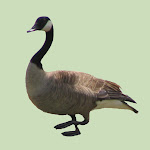Guatemala City, Guatemala
Ana Escobar's baby, Esther, was kidnapped when she was just 6 months old. Ana was locked in a storage closet by armed men who stole her baby. "When I got out, my daughter was gone," she said in an interview.
Guatemalan authorities have long suspected that the country's 100$ million a year adoption program is corrupt, relying on kidnapped children like Esther to populate their baby banks. The system is so efficient that, after China, Guatemala is the most common source for American parents to search for adoptable children. In May, however, thousands of pending adoptions were halted to provide a change for investigation. No irrefutable evidence has been found to prove that kidnapped babies have been supplying the adoption program, until now.
When Ana Escobar heard the news about the adoption stoppage in May, she rushed to the National Adoption Council's office. She hoped to be allowed to see pictures of the children whose cases were being reviewed. Though Esther had been gone for over a year, Ana immediately recognized her in an image of the baby being carried away by an official. More photographs of the same toddler only strengthened Ana's resolve, and she insisted that the little girl was her own.
By that time, Esther had DNA records indicating that her mother was someone other than Ana. However, Ms. Escobar convinced officials to run a final test to confirm. The results proved that Esther was her daughter, as Ana knew they would. Mother and child are now reunited at last, in what is hopefully to be the first in a growing trend of righted wrongs in the Guatemalan adoption system.
To read more about this extraordinary reunion, visit http://www.foxnews.com/story/0,2933,390044,00.html
Thursday, July 24, 2008
Make Way for North Atlantic Right Whales
Nova Scotia
With only 350 North Atlantic right whales left in the world, scientists and mariners alike are working towards finding ways to protect the population from further decline.
Their small numbers mean the whales tend to stick together, within a relatively small geographical area of the sea near Nova Scotia. While it has been illegal to hunt these whales since 1935, until recently their curious nature attracted them to passing ships, which would accidentally strike and kill several the curious 70 ton animals who had surfaced to take a look around.
Luckily, last year the International Maritime Organization adopted a proposal made by Canada's UN ambassadors to designate the Roseway Bay as an "Area to Be Avoided," or ATBA for short. Each year between June and December when the whales return to in Nova Scotia from their summer vacations in the south, ships weighing 300 tons and larger are asked (not forced) to go around the Roseway Bay. Despite its voluntary nature, most ships are obeying, and some shipping companies are enforcing official policies. Going around the whale pods only adds about 8.6 minutes to a 16-hour voyage between Halifax and New York, with negligible additional fuel costs.
Thanks to the willing participation of ships in the night, we really can save the whales!
http://edition.cnn.com/2008/TECH/science/07/10/rightofway/
With only 350 North Atlantic right whales left in the world, scientists and mariners alike are working towards finding ways to protect the population from further decline.
Their small numbers mean the whales tend to stick together, within a relatively small geographical area of the sea near Nova Scotia. While it has been illegal to hunt these whales since 1935, until recently their curious nature attracted them to passing ships, which would accidentally strike and kill several the curious 70 ton animals who had surfaced to take a look around.
Luckily, last year the International Maritime Organization adopted a proposal made by Canada's UN ambassadors to designate the Roseway Bay as an "Area to Be Avoided," or ATBA for short. Each year between June and December when the whales return to in Nova Scotia from their summer vacations in the south, ships weighing 300 tons and larger are asked (not forced) to go around the Roseway Bay. Despite its voluntary nature, most ships are obeying, and some shipping companies are enforcing official policies. Going around the whale pods only adds about 8.6 minutes to a 16-hour voyage between Halifax and New York, with negligible additional fuel costs.
Thanks to the willing participation of ships in the night, we really can save the whales!
http://edition.cnn.com/2008/TECH/science/07/10/rightofway/
Subscribe to:
Comments (Atom)
